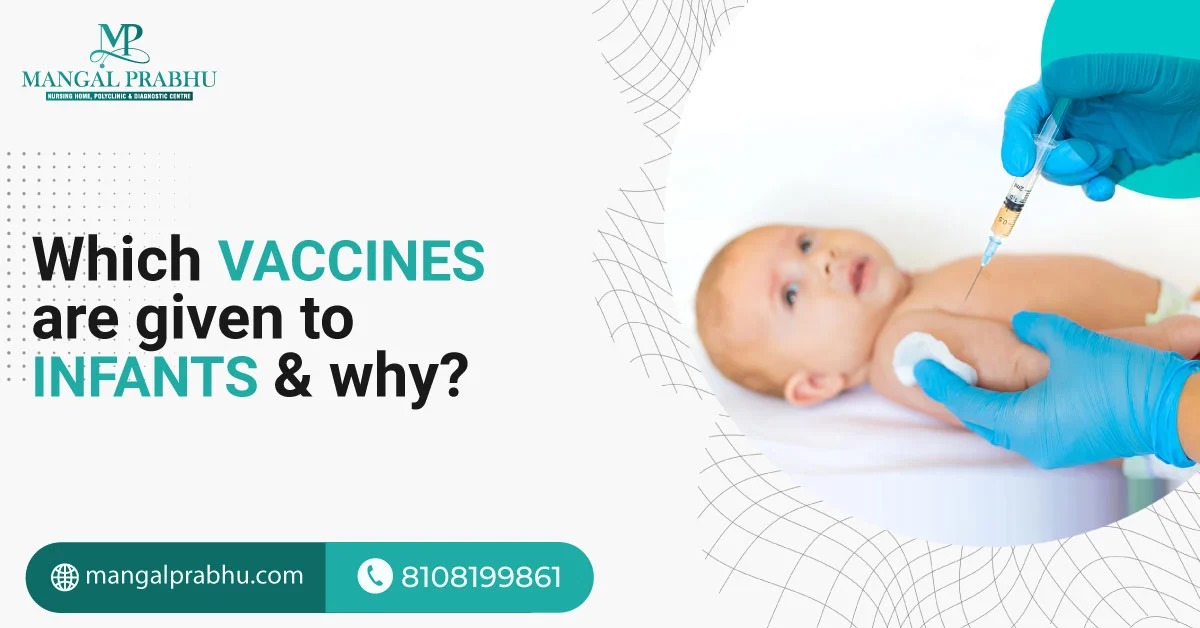
Nobody likes to see their just-born baby getting vaccinated. However, immunization can prevent your babies from deadly diseases. A baby’s immune system is not fully developed, which puts them at an increased risk of certain illnesses and, eventually, hospitalization.
Many children die because of diseases that could have been easily prevented with vaccines. Your pediatrician in Navi Mumbai will give you a detailed list of the baby’s immunization schedule. We’ve compiled this detailed guide to help you understand different vaccines, the required dosage, and when they are given. Let’s see which vaccines are given to infants & why.
Vaccines Administered at Birth
1) Hepatitis B
It is the first shot administered to babies within 24 hours of life. The vaccine protects them from hepatitis B, a liver infection that’s highly likely to turn into a chronic liver illness if an infant contracts it. The vaccine is given right after birth to reduce the risk of the infant contracting the virus from the infected mother or other close ones. This vaccine is administered in three doses — one at birth, another in 1.5 months, and the last in 3.5 months.
2) Vaccines Given in the First Year
i) DTaP Vaccine:
Diphtheria, Tetanus, and Acellular Pertussis, short for DTaP, is a range of life-threatening illnesses that have killed many babies in the past. Diphtheria is a serious throat inflammation that can also lead to kidney and heart damage in young babies. Tetanus bacteria get into your body through an open wound. Pertussis is a whooping cough, particularly dangerous in babies.
ii) Hib Vaccine:
Haemophilus influenzae type b disease can cause serious brain or spinal infections in children under five. The Hib vaccine is administered in three doses (at 6 weeks, 10 weeks, and 14 weeks). It protects the baby from ear infections, throat inflammation, meningitis, and other serious infections.
iii) Polio Vaccine (IPV):
Polio vaccine protects babies from a deadly poliovirus that can result in paralysis and death. It’s also given in three doses.
iv) Pneumococcal Vaccine (PCV):
The pneumococcal vaccine protects babies from Streptococcus pneumoniae, a serious bacteria that can cause pneumonia, meningitis, and even sepsis in some cases.
v) Rotavirus Vaccine:
Rotavirus prevents diarrhea in infants. Severe diarrhea that causes frequent watery stools with fever, vomiting, and abdominal pain can cause dehydration in babies, and some need to be hospitalized. The vaccine is administered in 2-3 doses.
3) Vaccines Given Between 12 and 18 Months
a) MMR Vaccine:
The MMR vaccine is given in two doses, and once vaccinated, the child is protected from mumps, measles, and rubella for lifetime.
b) Varicella Vaccine:
Another vaccine included in the child’s routine immunization schedule is varicella for protection from chickenpox. The vaccine is administered in two doses and can mitigate the risk of disease severity or complications if the vaccinated child contracts it.
c) Hepatitis A Vaccine:
Hepatitis A vaccine offers life-long protection from the viral infection that can cause liver diseases. It spreads through an infected person or by ingesting contaminated food.
Conclusion
Children’s immunization in Navi Mumbai is done at private pediatric and government hospitals. It’s important to keep track of your child’s vaccination schedule and get every dose at the right time.
